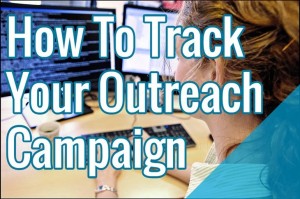A recurrent theme among the Blognocracy in 2017 was the idea that we are at “peak content”. Meaning there is simply no more room out there for all the posts and blogs and books and videos and webinars and white papers and so on. I disagree, though I will admit that we are at Peak Bullshit.
There is an entire industry dedicated to creating content out of nothing at all. These are the people who will interview you for half an hour and turn whatever flew out of your mouth into a “book”, for which they will then sell you services to turn that twaddle into blog posts, tweets, hardcopies and more.
There are even more people who will sell you courses in productivity, book-writing, public speaking, personal branding, social media promotion and what successful people do between 10:37 and 11:04 each day. Some of this is honest and helpful; most of it is the fetid output of the Bullshit Industrial Complex (BIC).
As with fake news, I suspect (or, perhaps only hope) that professionals are getting pretty good at spotting the BIC’s handiwork in our social feeds, LinkedIn groups and email. I worry, though, that all this noise and hustle is undermining the very real work of good brands and thoughtful people who have helpful ideas. We used to call them thought leaders, though that feels a bit tarnished now, doesn’t it?
Which is really too bad because good thought leadership is good for business:
- It helps sales people have intelligent conversations about how your product solves a customer problem
- It helps your employees understand the industry and how your brand participates
- It helps marketers cut through the noise with high-value content
- It helps executives build their presence
- It positions your brand in the market
- It opens new areas for discussion inside your company and your industry
All of this is good and healthy and appropriate.
The problem is, the BIC is giving it a bad name with its add-water-and-stir approach to starting intelligent conversations. Here’s an example: I recently attended a lovely event, featuring an explorer who was talking about teamwork. He told a compelling tale of leadership, teamwork, risk and reward, all of it straight out of Stephen Covey’s Seven Habits work.
I’m a fan of Covey’s and I love a good slide show with photos of mountains. If this speaker had been upfront about how his experiences proved out Covey’s theories, I would have been happy enough. If he had managed to build on the work to uncover some new information or some cracks in the logic or anything new at all, that would have been lovely, too. But in the end, it was like a chicken wrap on an airplane – a nice diversion into a nutritional void with the usual lessons attached.
In other words, nothing new here. And that is one of the cardinal sins of the BIC. There isn’t anything original coming out of it: it’s rehashed, warmed over or just plain stolen from the existing canon of business and personal improvement. To be fair, some that material is very good, but poor old Sun Tse is getting a bit worn. Also, none of this is original and none of it is adding anything new.
There’s another guy who promises to make you a thought leader on LinkedIn by getting you TV network logos you can put on your profile picture. How, you ask? Well it seems if you post a decent comment on a website belonging to, for example, ABC News or CNN, they might publish it in the crawl or read it on the air. This, apparently, allows you to grab their logo and put “…as seen on” on your LinkedIn profile. For a fee, this guy will do that all for you, and abracadabra, you needn’t bother actually earning your way onto a news show, developing any kind of authentic thought leadership of your own, or even managing your own brand.
As a special bonus, you get to diminish the value of both the media brands you are co-opting and the real experts who actually have something to say. That’s bullshit, and this guy, if you believe him, is making a killing.
I don’t really know how to shut down the BIC; I can only hope it exhausts itself into irrelevance. In the meantime, I think the best way to fight back is for brands and people to get on with the honest, valuable work of finding original and authentic ideas that move us forward. If you’re not sure where to find those ideas, ask your employees.
More on that one next week.
Business & Finance Articles on Business 2 Community(26)





